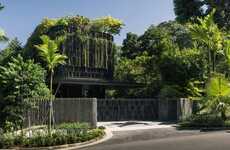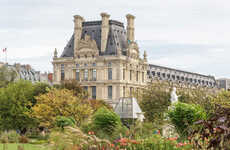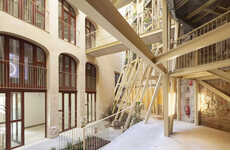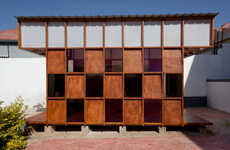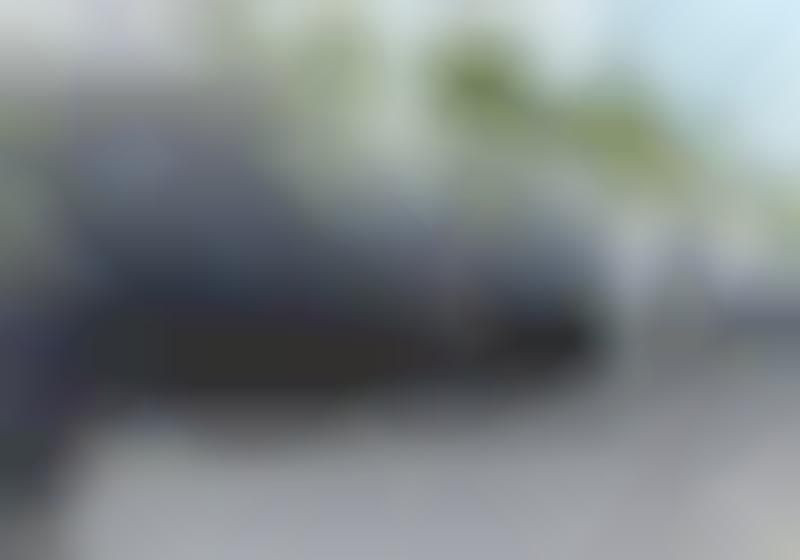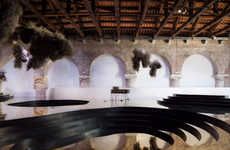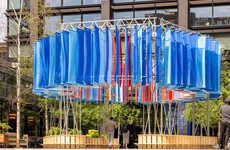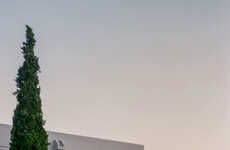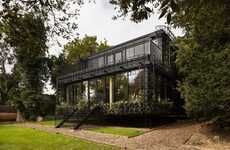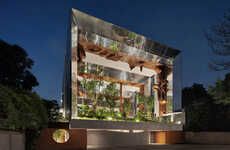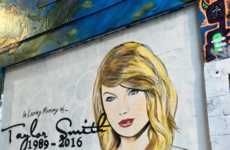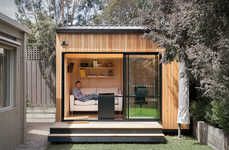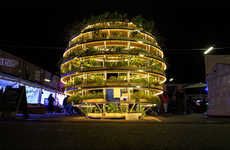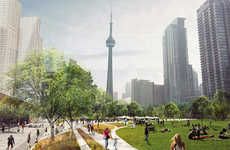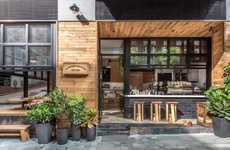
The 'Cubitt House' Pavilion Will be Covered in a Grid of Mirrors and Flora
Joey Haar — August 17, 2016 — Art & Design
References: thedesignjunction & dezeen
The Cubitt House will take on a new form for this year's 'designjunction' event at the London Design Festival. Created by London-based Satellite Architects, the newly designed building will have a facade with a grid-like pattern that incorporates rhomboid mirrors and wild flora.
The concept is interesting in that it combines the sterility of black and white metallic grids and polished mirrors with the unpredictable explosion of natural growths that come from trees, shrubs, and other plants.
The facade's wild grip will also continue to the inside of the Cubitt House. The walls in the building will resemble the grid on the outside, creating a disorienting pattern that can at times be difficult to navigate. This disorientation is intentional, though, as it will encourage viewers to abandon navigation and focus on the designs throughout the exhibit.
The concept is interesting in that it combines the sterility of black and white metallic grids and polished mirrors with the unpredictable explosion of natural growths that come from trees, shrubs, and other plants.
The facade's wild grip will also continue to the inside of the Cubitt House. The walls in the building will resemble the grid on the outside, creating a disorienting pattern that can at times be difficult to navigate. This disorientation is intentional, though, as it will encourage viewers to abandon navigation and focus on the designs throughout the exhibit.
Trend Themes
1. Grid-facade Architecture - Opportunity for architects and designers to explore innovative uses of grids and patterns in building facades.
2. Biophilic Design - Potential for incorporating natural elements, such as wild flora, into architectural design to create visually appealing and environmentally friendly spaces.
3. Disorienting Experiences - Emerging trend of intentionally disorienting environments to encourage viewers to engage with designs on a deeper level.
Industry Implications
1. Architecture - Architectural firms can explore new concepts for building facades, incorporating innovative patterns and materials.
2. Interior Design - Opportunity for interior designers to create spaces that embrace biophilic design principles, utilizing natural elements and patterns.
3. Experiential Design - Design firms can develop immersive and disorienting experiences for exhibitions and events, creating unique and engaging environments.
3
Score
Popularity
Activity
Freshness


